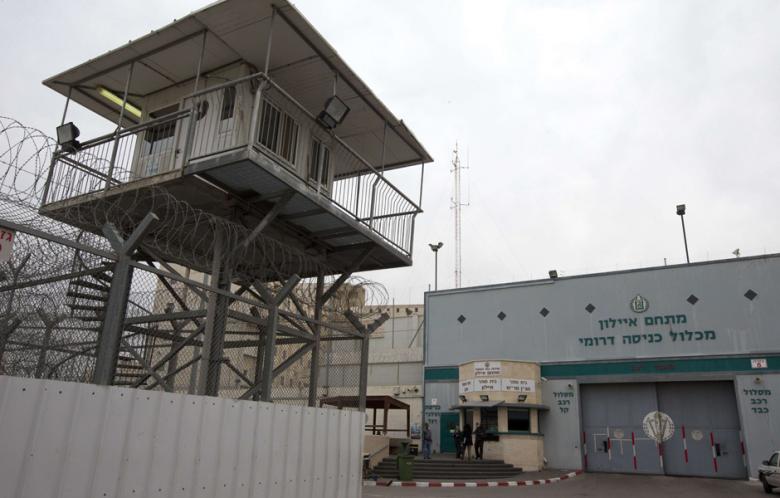
Secret Prisoners of "Israel’s" Past

By: Yahya Dbouk
Al-Akhbar daily, February 15, 2013
 The case of Ben Zygier, known as "Prisoner X," has opened the door to questions about the possibility of "Israel" secretly detaining other prisoners and abductees.
The case of Ben Zygier, known as "Prisoner X," has opened the door to questions about the possibility of "Israel" secretly detaining other prisoners and abductees.
Zygier, a Jewish-Australian citizen, died in an "Israeli" prison two years ago, in a case "Israel" went to extreme lengths to cover up, imposing media gag orders.
Until recently, the global norm was to accept that "Israel" is an entity where the rule of law is paramount.
This is not the first time "Israel" has hidden information related to the whereabouts and conditions of prisoners. Consider, for example, reports of the three Iranian diplomats kidnapped by the Lebanese Forces during the "Israeli" invasion of Lebanon in 1982, who were reportedly moved to prisons in occupied Palestine.
Then consider the case of Lebanese prisoner Yahya Skaf. In addition to a wealth of reporting on his case, testimonies by other detainees all aver that he is still alive and being held in an "Israeli" prison. It's a claim that Tel Aviv denies, maintaining that it lost Skaf's body.
In the same vein, reports from various sources assert that Iranian General Mohammed Reza Asgari, who was kidnapped in Turkey in 2007, is being held in "Israel".
Until recently, the global norm was to accept that "Israel" is an entity where the rule of law is paramount. Any reports that questioned "Israel's" democratic credentials were considered prejudiced or even anti-Semitic.
Yet if Tel Aviv was able to conceal the truth about Zygier for so long - the fact that he had committed suicide more than two years ago - then it's entirely fathomable that "Israel" is withholding the truth about other prisoners like Skaf, Asgari, and the above-mentioned Iranian diplomats.
The answer is now clear and backed up by damning evidence: "Israel" has both the capability and the willingness to engage in such acts.
A simple hypothetical exercise. Let's say the kidnapping, detention, and subsequent suicide of the Australian Prisoner X had happened to another detainee of a different nationality. How would the global media reaction differ? Would it have been as fervent as with the Australian Prisoner X?
Just look to the cases of the Lebanese and Iranian detainees, specifically with the three Iranian diplomats and General Asgari. Iran repeatedly declared that it had evidence as to their whereabouts, and the Iranian press reported extensively on the matter. Yet "Israeli" denials were enough to refute the Iranian account. Western and "Israeli" reports did not stop there, and Iran was even mocked as a source of fabricated news.
The same applies to cases involving Lebanese citizens, such as Skaf. "Israel" cannot possibly deny it has him, and that he had entered occupied Palestine. For one thing, Tel Aviv's claims about Skaf and his lost body make little sense. If he had been a citizen of Australia, or other nations of similar stature, "Israel's" account would have differed.
"Israeli" assertions that Tel Aviv had kept the Australian government in the loop on Prisoner X created more - not less - ramifications. Indeed, "Israel" is not only able to hide the facts and detain people in secret, but also to involve Western governments in the cover-up.
Secret Prisoners of "Israel's" Past
Mohamad Bdeir
"Israel" is not only able to hide the facts and detain people in secret, but also to involve Western governments in the cover-up.
Ben Zygier's is not the first case where the authorities in Tel Aviv detained someone in secret, isolating them from the outside world and denying their existence. The "Israeli" tradition in this regard dates back to the 1950s, with the precedent set in the arrest of Mordechai ‘Motke' Kedar.
Kedar served in Unit 131 of the military intelligence and was detained for the murder of an agent working for Mossad during a mission in Argentina.
When Kedar was arrested in 1957, his imprisonment was kept under wraps. The only details that surfaced at the time were reported by the "Israeli" daily Yedioth Ahronot, It was able to report the detention of a "secret agent" before the military censors in Israel imposed a gag order.
Kedar remained in a secret section of the Ramle prison for 17 years. He was also nicknamed "Prisoner X." After his 1974 release, he immediately left "Israel". Kedar returned in the 1990s to demand a retrial, but to no avail.
After Kedar, there was the case of Shabtai Kalmanovich, a Lithuanian Jew who was recruited by the KGB in exchange for allowing him to emigrate from the USSR to "Israel". There, he became active in the Labor party, and served as a parliamentary assistant for a Labor MP.
Kalmanovich was arrested years later on charges of passing information to Soviet intelligence for 17 years. He spent five years in prison before he was granted an early release due to his health. In 2009, Kalmanovich was shot dead by unknown assailants in Moscow and was buried afterwards in Israel.
Avraham Marcus Klingberg, a Polish Jew, was another secret detainee. He enlisted in the Red Army during World War II and then emigrated to "Israel". Klingberg served in the "Israeli" army, and rose through the ranks to lieutenant colonel. After that, he served as the deputy head of a biological institute that was responsible, according to press reports, for weapons research.
He was arrested in 1977, and during his interrogation, he admitted that he had been working for the Soviets for 20 years, during which he relayed classified information on "Israel's" biological and chemical weapons research.
Klingberg was sentenced to 20 years in prison, but his detention was kept secret for ten years. In the late ‘90s, his sentence was shifted to house arrest. In 2003, he left "Israel" to live in France.
Another case involves Mordechai Vanunu, the famous nuclear whistleblower who was kidnapped by Mossad in Italy in 1986. Vanunu was tried and jailed in "Israel" for 18 years for exposing secrets related to the "Israeli" nuclear program that employed his as a technician.
Similarly, Yitzhak Yaakov, a brigadier general in the "Israeli" army reserve, was arrested and tried in secret in 2001 for disclosing national security secrets in his autobiography.
In most cases where the "Israeli" authorities engaged in secret proceedings and cover-ups, the excuse cited was preserving national security secrets. However, there are other cases where "Israel" secretly detained people for years after kidnapping them.
One prominent case of this kind involves six Lebanese prisoners who were handed over to "Israel" by the Lebanese Forces in the late 1980s. "Israel" kept their detention secret for over seven years before notifying the International Committee of the Red Cross of their existence as part of negotiations for a prisoner swap with the Resistance.
Comments

France’s Hollande in Qatar for Warplane Deal
9 years ago
Iraq Police Dismantles Al-Qaeda Protest Site
10 years ago
